So, you wanna add a few bonus points to your daily grades??
Tomorrow, we begin our poetry mini-unit prior to finals. Bring in your favorite poetic piece.
a. The poem does not have to be older than 300 years. Modern/contemporary poetry is perfectly fine.
b. The poem does not have to be serious. It just has to be your favorite.
c. The poem does not have to be about love.
d. You should be willing to share why this is your favorite poem.
It's not worth a ton, but it can turn a quiz grade from an 85 to a 90. Just a thought. I'd love to see what you bring forth.
See you in the AM!
Ms. B
I have been thinking about this post for two hours. I really don't know how to start it. Perhaps I should begin with the truth: I hate writing conclusion paragraphs. It's one of those things that comes with practice and is hard for me to teach. But, I'm going to give it a shot through this post, because I know some of you are having trouble doing anything but what you have been taught for years, which is something I DO NOT want you to do... Conclusion rule #1: DO NOT REPEAT YOUR THESIS. So many people believe that a conclusion paragraph basically paraphrases or flat-out restates your introductory paragraph. WRONG. Couldn't be more wrong. We know you were going to write about that. I'm not looking for a summary or a recap. You need to give me something else...without writing any new ideas. Which brings me to... Conclusion rule #2: DO NOT WRITE ANY NEW IDEAS. Let me guess - you have this question: "Well, Ms. Bellon, how in the sam-hill are we supposed to write anything down if we don't include new ideas?" Here's the trick; you need to reflect or reveal a bit more of your opinion about Everett's reflection of Odysseus. You have been revealing many facts that help to reinforce your argument, and using this to spark discussion. So, your conversation has been fact driven. But, based on the facts, what is your final opinion? Your conclusion can be a reflection or a response to your thesis, but it shouldn't give the same exact message. Conclusion rule #3: KEEP IT SHORT. The more you write, the more tempted you will be to add information that has not been discussed prior to the final paragraph...a fatal move. Just don't do it. Some advice: 1. Depending on what kind of essay you are writing, you can make commentary on the strength of Everett's representation of Odysseus. You have a part of that in your thesis. As long as you bring up no new traits or argumentative elements, you can briefly continue that discussion. 2. You can also reinforce Odysseus as being an embodiment of an epic hero, and whether or not Everett truly qualifies, according to your argument. 3. You can compare historical perspectives (Odysseus and Ancient Greece vs. Everett and Depression-era Mississippi) and discuss how the historical interpretation of the character effects how Everett reflects Odysseus as an epic hero. That's all I've got. Paraphrasing your thesis simply won't cut it - I need just a little bit more of you in the conclusion. Now that you have finished your argument, reflect. Think about it like a lawyer might at a closing argument - a final, impassioned cry for the jury to believe, sympathize, and understand. You are doing exactly the same thing.
At last count, 30 of you have submitted your essays. You know how to make me a happy
FINALLY. Frickin' finally. You now have the opportunity to go forth and submit your essay after ratiocinating the heck out of it. Beautiful! We're not discussing The Odyssey or O Brother, Where Art Thou? in class anymore, but you can still attend tutorials through tomorrow afternoon, if you so desire. You can also ask me questions through this here website. SO, just to remind you (and because several students asked), here's what you need to submit for full essay credit: -Both dialectical journals from The Odyssey -Dialectical journal from O Brother… -Completed outline -1st rough draft, plus peer revision feedback -2nd rough draft, with ratiocination marks -Final draft, in MLA format -TurnItIn.com receipt Oh, yeah...about TurnItIn.com... Did you lose that precious information, sweet child? ::facepalm:: Here is the link to the blog post about how to upload to TurnItIn. Follow the steps to recover your information if necessary. Remember, most of you used Gaggle, but some of you used an alternate account. Try to remember which camp you belong to. Tomorrow, POETRY. Can't wait. It's not all that mushy love crap written in obscure language. I'd hate it, if that were the case. Hopefully I can give you some background so you can appreciate it, even if not fall in love with it.Until tomorrow,Ms. B
Today, in class, I asked you to "stop, drop, and write" an introductory paragraph. The bad news is that you were asked to do this in the frame of about 15 minutes... not much time at all to make sure a paragraph is properly proofread and revised for action. The good news, however, is that you had a seed of an intro paragraph, something you could work with and improve to make phenomenally attractive. We also discussed how to get that attractive outside glow on your paragraph - something I like to call "the hook" (so does every other English teacher in the western world, but whatever...). The hook is designed to spark and hold your reader's interest in the essay. Yes, I do realize that you are all writing about The Odyssey and O Brother, Where Art Thou?, but if you can write an interesting paper that takes these two works and elevates them to a true conversation about human nature, you are doing better than most AP seniors are right now...I promise. So, how do you do it? How do you ensure that your reader will be hooked? Here are some of the ways we discussed today? 1. THE QUOTE. I told you that your quote could come from three different places: The Odyssey (such as Odysseus' epithets) , O Brother, Where Art Thou? (which means you'll have to go back and find direct quotes, but not a huge chore), and...everywhere else. The most important task in choosing an ideal quote for your hook is that your quote is thematically tied to the rest of your essay. Your quote should be well-chosen to reflect something you wish to echo about the personalities of Odysseus and Everett. Remember, BrainyQuote.com is an excellent place to start. 2. THE ANECDOTE. I told you that an anecdote is a 'short story'...as in 1-2 sentences short. If you want to use an anecdote, you can summarize a part of either The Odyssey or O Brother, Where Art Thou? in the beginning of your essay, and then tie the characteristics you wish to discuss to your anecdote. A well-written anecdote is like a good gateway into a story - you're giving us a decent glimpse, but not the entire picture. 3. THE WITTICISM. If I don't have the sarcasm student market cornered, I'm not sure who does... Witticisms are simply clever, smart, and witty remarks that are an off-beat reflection of any topic being discussed. What witticisms also do is expose the intelligence of a writer and their argument. Beginning with a witticism to encourage your reader may actually be the most effective way to kick off an essay, but it is most definitely the most difficult to write. (And, no, Joseph...you may not begin your essay with "I have a dream..."). 4. THE RHETORICAL QUESTION. You guys know what rhetorical questions are because you started learning about their function in, oh...say...the third grade. This is simply a question with no specific answer, which forces the reader to think and process prior to a focused discussion. What has changed, however, is the analytical depth required by the question. You can no longer ask, "What do you think it would be like if you were an epic hero?" Unless your reader is interested in becoming Odysseus-like, nobody cares. Not. A. Soul. So, a more complex reflective question is required. For example, Sahiti (1st period) had an excellent question: "How can a common criminal ever be associated with the likes of a legendary ancient epic hero?" It's a good question, and it's a hell of a way to start of an essay, no matter what is being defended. 5. THE SIMPLE REFLECTION. Most people begin their essays this way. It's non-gimmicky, and you are giving it to your reader straight, no chaser - you are simply letting the reader know what you noticed and understood while reading The Odyssey and watching O Brother, Where Art Thou? You can make direct statements letting the reader know which themes are discussed, and how Everett and Odysseus portray these themes, similar or different - it doesn't matter. Those are the "hooks". Now, for the don'ts of your intro. Please, do not do this in your intro (or throughout your entire essay, for that matter). - Remember, "You" is dead. 2nd person forces the reader into an experience they may or may not have had. Don't assume your reader understands. Pretend that you're breaking it down for a seventh grader, like my kid. Make him understand both the book and the movie, and why the comparison/contrast needs to be made. - There is no place for slang in formal writing. There might not be any quicker way to earn a lower grade than the over-use of colloquialisms (commonly spoken speech for those of you who refuse to use Dictionary.com). This includes modern slang, repeated use of idiomatic language, and any clichés. (And, Christian...if you're reading this, don't capitalize every word you wish to emphasize. I will know which words need to be emphasized. I promise. I can read like that.) -3rd person and unified tense (past or present, doesn't matter) are what formal writing is all about. Don't say that "I believe" or "I will defend that" or "I think". It weakens your paper and makes you sound defensive. Just. Say. It. You will sound authoritative and controlled this way. -Watch your use of qualifiers and contractions. If you have a phrase that you can replace with a single word and convey the exact same meaning, use it, by God. Contractions are the devil, straight up. They suck, and make your writing sound informal. You are only missing a few letters...write them out. -When in doubt, check your thesis. If you read your body paragraphs and your thesis, and they are not discussing the same topics, something needs to change right away. It's easier to alter the thesis, especially after the body paragraph is written. It's less convenient to change around the body paragraphs. As you finish, make sure that a flow exists. Tomorrow, when you edit someone else's essay, think about this: Does this make sense? Is it clear? Is there evidence present to reinforce the argument being made?
Tomorrow: peer editing, self editing, and a partridge in a pear tree.
See you then, Ms
*Note: the title of this post refers to an old Queen, Queen Latifah, or Beyonce song, depending on the generation on which you fit. Now, on with the show...
As you read the outline for the Odysseus vs. Everett DCQ essay, you must notice that you have to discuss both characters and a common/uncommon trait, and how you know that the trait is common/uncommon to both characters. You have to defend this with evidence, and then you have to explain why you would discuss this.
Let's take a broad, hypothetical shot at this... Let's use the term courageous. And, to make things fun, let's say I am writing a challenge essay.
Okay, so I am trying to say that Everett is not courageous. Remember, your goal is to DEFEND YOUR POINT, NO MATTER WHAT, REGARDLESS OF THE OTHER EVIDENCE THAT MAY BE PRESENT TO DEFEND YOUR POINT. I need to show that Odysseus is courageous, and Everett is not; therefore, Everett is not a worthy representation of Odysseus.
1. Odysseus: courageous when he takes his sailors out of Polyphemus' cave; he helps to strategize their escape to prolong uncertain death. His courage helps him think quick on his feet, and keep the Cyclops alive so they can escape.
Can I find text evidence to back this up? Yes.
Can I discuss why Odysseus is courageous in his actions during this section of The Odyssey? Yes.
2. Everett: not courageous when the police, provoked by Wash Hogwallop, come to burn down the barn in which they are sleeping, claiming he hates fire, and being willing to negotiate with law enforcement.
Can I provide evidence from the movie to back this up? Yes.
Can I discuss why this shows Everett as 'chicken'? Oh, of course.
Can I then turn this into why Everett is not a good representation of Odysseus? Sure, I can. Simple.
3. Then, I need to talk about WHY THEY ARE DIFFERENT (because this is a challenge essay, or the same if you're writing a defense essay, or similar with conditions on the qualify essay). I can say something about how Odysseus failed to negotiate with the Cyclops, and certainly would not have negotiated with his suitors, because that would not have been heroic. I could say something about how, as a Greek man, Odysseus would have never bent to the whim of Penelope, no matter how much he loved her. I could also say that Everett could have kept driving and stayed focused, but he stopped to listen to the "siren song" and became seduced, unlike Odysseus who heeded warnings and told his crew to hold him fast.
I could also disprove all of these points if I was writing a defense essay as well. You see, folks, it's all about the angle you take. If you liked Everett, and you believed he was an epic hero, find something that helps you defend that. If you...maybe...say that Everett was somewhat heroic, but definitely had his anti-hero moments, defend that. If you think Everett was a small-timing wuss who had a silver tongue, defend that.
It doesn't matter what you believe if you can't prove it. Remember that. If you have an opinion about Everett being the representative of Odysseus, and how he played that up, DEFEND THAT. That's what I'm looking for.
Choose three character traits that are discussable between Everett and Odysseus. Each of those traits will take one body paragraph to discuss. They'll be fat paragraphs too. That's okay, though, because you should come with most of it, if not all, pre-written before tomorrow's class.
Let me know if you have any questions!
peace, love and chicken grease,
Ms. B
next post: Int
Let's not be Calvin, okay? That would not be good... On the other hand, we can attempt to structure our essay according to the outline. On the outline, you were given a template to follow, making comparisons between Odysseus and O Brother's Everett. Let me attempt to clarify some things before you delve head first into that outline... 1. Everett is supposed to be a representative of Odysseus. Period. This means, every single action that Everett commits is supposed to represent Odysseus as a character. Some of this works out; some of this doesn't compute. It is up to you to decide whether or not, as a personality, if Everett can stand up to the epic hero that is Odysseus. 2. Notice in the point above that I said we are comparing personalities. Of course, actions are part of this, but not every action in O Brother finds an equal in The Odyssey. So, as you are setting up your character analysis, ask yourself, "Would Odysseus make the same decisions that Everett made in O Brother? Why or why not?" If you can answer that question a few times, you can then decide whether or not to defend, challenge, or qualify.
3. Don't worry so much about Delmar and Pete, other than the fact that they are Everett's foils. We will learn more about the foil character in Romeo and Juliet, but the foil forces a character to reflect and analyze their own behaviors. As Delmar and Pete act, they force Everett to act. When Everett acts, Delmar and Pete react as well, giving more depth to Everett as a character. It's hard not to focus on them, because they become just as influential in the movie as Everett is. However, Everett needs to be the focus because that is what are essay centers around.
Read the posts above for transitional words in body paragraphs, and how to begin
This might be Odysseus' reaction had the Sirens been replaced with the likes of Selena Gomez, Demi Lovato, and other teeny-boppers that dominate Twitter, Facebook, Instagram... However, because we are dealing with the world of the ancients, characterizing Odysseus is less about how he sees the world and more about how we see him.
I want to talk about your dialectical journal that you guys are working on right now, and the idea behind making judgments for appropriate quote choices. Remember how I mentioned something about direct characterization and indirect characterization? Here's how that works for this assignment:
Let's take Polyphemus...you know, that big nasty Cyclops that winds up with eye goo all over his pristine island, courtesy of Odysseus. We could use Polyphemus' commentary when he announces to the other Cyclopes that "Nohbdy's tricked me! Nohbdy's hurt me!" This is definitely a reflection on Odysseus' cunning and ability to assess a perilous situation.
...But what if you actually pulled the quote where Odysseus declared himself, "My name is Nohbdy; my friends, my family call me Nohbdy." We can actually better discuss the set-up Odysseus is creating, and that we know he is determined to get his crew out of the cave and become the hero we know he is. Ah... the joys of realizing your epic hero-ness.
You have also been asked to use your characterization terms list to assist in finding the right language to describe Odysseus. DON'T BE VAGUE (unless you want to throw me into seizures; in that case, go right ahead, injure me, throw me into fits. Butthead).
Once we use that word (whatever it is) to describe Odysseus in the context of the evidence selected, make sure you answer this question: How does this quote show this characteristic of Odysseus? Why do we know this? Remember that you are going for depth, not a summary or recollection of events. We know what happens. You can give brief recaps in the essay.
So, there's my rant for the night. If you would like to go over the movie we'll start watching on Thursday, here's the link to the movie's IMDB page...
See you tomorrow. And, many apologies to Periods 6 and 7 for being absent today; leaving today was the last thing I wanted to do, but when one has a sick child, parental duties call.
Much love,
Ms. B
The website for the online textbook is my.hrw.com. Don't type www before it; hat just confuses the Internet.
Once you arrive at the page, there should be a logon page to access. There, you can input the username and password you have been assigned.
If for some reason you did not get an online code, here is a generic student logon for you:
Username: gstudent815
Password: m2m2t
For Thursday, you are responsible for reading books 1, 5, and 9 of The Odyssey. They are all found in Chapter 11 of the book, starting on page 1210 (or thereabouts...).
Tomorrow is part 2 of the DA. I know you guys are just about tested out, but please hang in. Rewards are yet to be seen...
Until tomorrow,
Ms. B
First of all, I told you I would repost the prompt. Here it is:
•We understand that Helen’s abduction from Greece influenced the beginning and outcome of the Trojan War, but her influence over ten years of fighting is tentative. Basing your answer on the literature reviewed about the Trojan War, defend, challenge, or qualify the assertion that Helen is completely to blame for the Trojan War. You must include four references from your sources, including the image, and make your stance clear through your thesis statement.
I know. It's long. You will all be cursing my name later this weekend. However, this type of prompt is shown on the AP Language exam, and forces you to evaluate lots of sources in a very short amount of time. At least we're using sources we talked about all week, and I am giving you the weekend to prepare.
Today, in class, I asked you to highlight the key terms within the prompt that will help you negotiate the question.
1. Helen's role in the war. What we know for sure, according to mythological account, is that Paris stole Helen from Menelaus, taking her to Troy. What is contested is how people then felt about her. Some claim that she is absolutely to blame for the entire Trojan War conflict, and others claim that she is, merely, a pawn in a game. ...Or maybe, she's both? You need to decide. Then, stick with that stance, all the way to the end of the essay.
2. DEFEND, CHALLENGE, and QUALIFY. This is what the question is asking you to do about the opinion you form regarding Helen, in the context of the literature in your Trojan War packet.
To clarify: To DEFEND is to state that you agree Helen is the cause for the entire Trojan War. To CHALLENGE is to state that you disagree that Helen is the cause at all - something else is to blame. To QUALIFY is to state that Helen may have/have not been partially responsible, but there are other perspectives/motives we need to consider as well.
3. Organizing your essay. The only full sentence you are allowed to have on your 3"x5" notecard is your THESIS STATEMENT. This sums up your argument, but you also need to defend that statement completely. NOTHING ELSE SHOULD BE IN YOUR ESSAY THAT FAILS TO DEFEND YOUR THESIS! PERIOD!
So, let's pretend you have your thesis. Now, you need to begin structuring your approach to the essay.
A. How are you going to defend your thesis? Choose 2-3 points that you think help to prove your thesis statement as correct. Make these your topic sentences for your body paragraphs.
B. What evidence do you have to prove your point? Again, your topic sentences need to be reinforced by your evidence. This is where that Trojan War Literature Packet comes in handy. All the information you need to defend a point is right there in your hands. USE IT. OWN IT. Make like you're the expert and explain away.
C. Discuss it. Make sure you fully discuss your points and evidence to make certain the reader understands exactly what you want to come across. If you feel like you're dumbing it down, you probably aren't...you are just being thorough.
Several people had questions for me to answer regarding this prompt and what's allowed. Here's some of what I can answer...
1. Are we allowed to use the lit packet on the test?
Yes.
2. Are we allowed to use the Mythology book on the test?
Yes, but against my advice. I would find the information you would want to use, paraphrase it, and put it on your note card. You will not have the time to flip through your book and finish your essay.
3. Are we allowed to use a notecard?
Yes. The notecard should be 3" x 5". You may write on the front and back. You may also type up your notes, but the print must be large enough so that a magnifying glass is not necessary.
4. What are we allowed to write on the notecard?
In short, your complete thesis statement and organized, bulleted notes. THAT'S IT.
5. How long do you want the essay. Aim for 4 paragraphs (1 intro, 2 body, 1 conclusion). More or less writing depends on how focused, thorough, and detailed you wish to be.
6. What are you looking for in the essays?
I want to know that you can form an opinion and defend it. I also want to know if you can organize your writing, confining your paragraphs to a single discussion strand. I also want to see if you can fully answer the prompt (every. single. part. of. it.). Be eloquent, thorough, and focused!
Let me know if you guys have questions...post them right here on the blog. I will respond as soon as I can, as I will only have intermittent access to a computer (I have my phone; it's just a bit more difficult that way).
Peace, children. And remember, the case study is there to help you (and it's also due on Monday). :-)
|


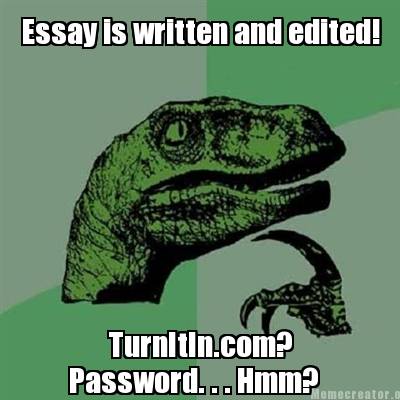
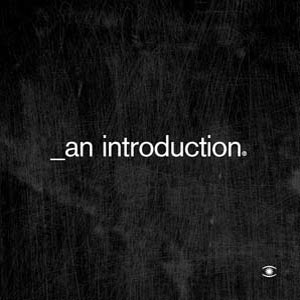
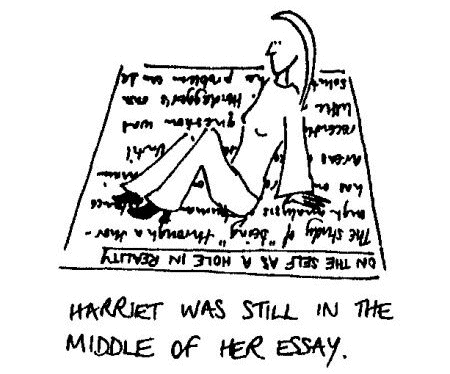
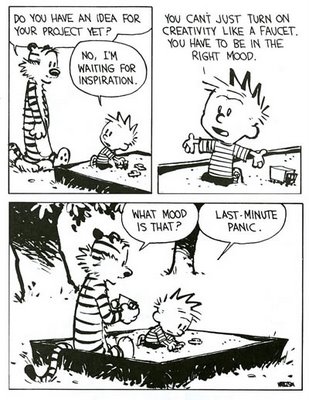
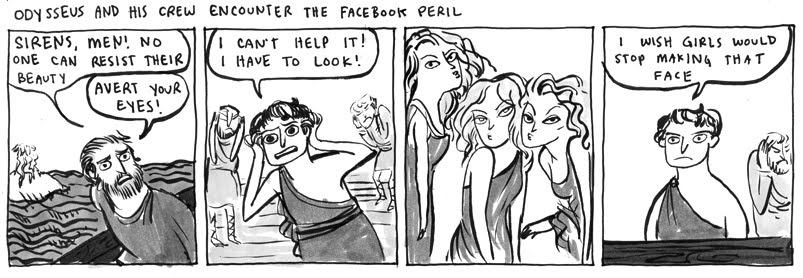
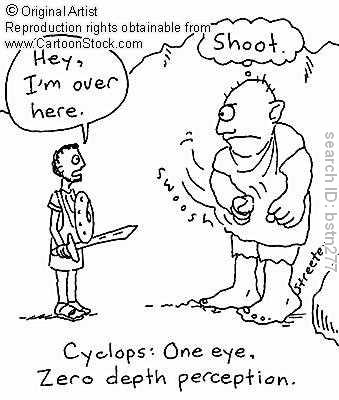
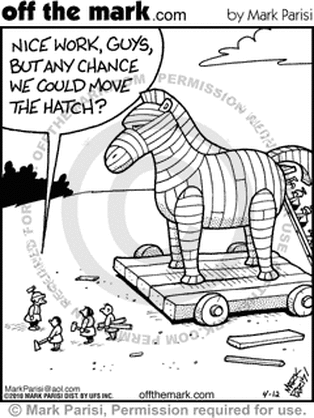
 RSS Feed
RSS Feed